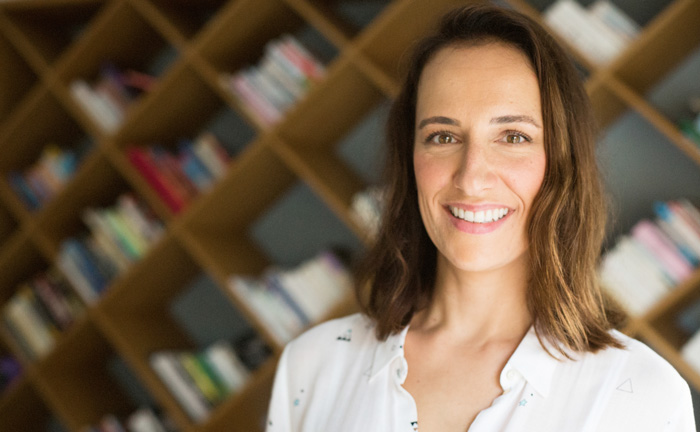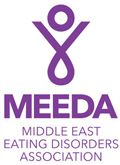When I was 28, I was diagnosed with a condition holding the barbaric name of ‘Hypothalamic amenorrhea’ (HA). Effectively, HA is a loss of menstrual cycle for 3 months or more, happening due to restrictive eating habits, overexercising, stress, genetics or a combination of all of those. I was lucky enough shortly after my diagnosis to leverage the power of the Internet and get in touch with Dr Nicola Rinaldi, who was about to become the global expert of HA through the publication of the first ever book on this condition, called ‘No period, now what?‘. Dr Rinaldi helped thousands of women recovering their hormonal health, and holds a really big place in my heart for the work she’s been doing tirelessly over the past decade to help women in their fertility troubles. Effectively, she encourages women to let go of restriction and punishing workout routines in order to rehabilitate their hormonal balance and start ovulating and cycling again. This process is typically called ‘going all in’.
The main requirement of the ‘all in’ process is to EAT, EAT, EAT to your heart’s content. And since hunger cues may not play their role effectively for you after a period of restriction, it means there should be no food rules, no ‘banned’ foods and no diet mentality involved, like counting, weighing or having ‘cheat days’. All foods are welcome, especially those who make your heart sing and those who are high in fat and caloric content, &, if you still count calories, eating well over the daily 2500 calories requirement is not only recommended but strongly encouraged. Your body needs to come out of starvation mode, so don’t be scared of eating ‘unhealthy’ foods during your recovery, because the healthiest thing you can do right now, is to restore your cycle. In the end, the goal is to reach that space of mental & physical freedom where you let go of the tracking, measuring, obsessing over food. [i]
In this post, I aim to give back to Dr Rinaldi’s amazing community of support and, in my own humble way, assist other women currently trying to recover their periods.
Five habits that can truly support your HA recovery
1/ Throw away your scale
Especially if you weigh yourself daily or more. Especially if the number ‘defines’ your mood for the day. Go cold turkey and learn to live without knowing how much gravity affects your body. Just like age, it truly is only a number.
2/ Only keep clothes that fit you well.
I know it sounds so obvious, but your mindset can greatly fluctuate depending on your body’s sensations in your clothes. Despite being recovered for a while now, tight clothing remains a massive trigger for me. Instead, give me comfortable clothes that fit me and I can rule the world!
I remember vividly avoiding trying out clothes and shopping while being all in, due to the slight panic of this unknown, constantly changing and expanding body of mine, in a culture that seemed to only praise shrinking it. But I also remember realising I could look fantastic with the right size clothing, regardless of what the label showed. And how important it was for me to allow this change to happen mentally, and to strive for self-acceptance, while I was working my way out of starvation mode.
So, don’t invest in expensive clothes right now, but also don’t get stuck in clothes that don’t fit you, these are a surefire way to halt your recovery.
3/ Diversify your social media feed
If your social media feed looks like a collection of fitspo, bodygoals and other strongnotskinny hashtags, there is a good chance you are being taught to be scared of fat and told you have to abide to the one standard of beauty that’s thin, white, able and cisgender.
In reality, and I quote Linda Bacon’s ‘Health at every size’ theory here: “body fat is not the killer it is portrayed as.(…) It is clear that weight is associated with increased risk for some diseases, but causation is an entirely different matter. (…) Obesity is also associated with improved survival in several diseases including type 2 diabetes, hypertension, cardiovascular diseas and chronic kidney disease.[ii]”
See more, be more. Replace triggering accounts with a larger diversity of size, race, ability accounts can change your perception of yourself and the world to get you on your way to long term recovery.
4/ Rest as much as possible
Stopping the high intensity training cold turkey was my biggest challenge, I was suddenly full of anxiety and unable to release it. Replacing my daily running routine with occasional light walks, gentle yoga and plenty of rest was one step. But what really made it last was to find a meditative practice. Meditation, journaling, listening to music, knitting, playing a music instrument, any hobby that you can lose yourself into can be of great help at a time where you need to provide calm to your body.
5/ Invest in your mental health
Beyond the food and exercise routines, are you craving for control in your work and personal life? Constantly aiming for perfection? Silently self attacking when you don’t reach your self-imposed (impossibly high) standards?
Restricting foods and over exercising are usually physical manifestations of a deeper unease. Yours could be rooted in past trauma, deep fears of abandon or rejection, depression, anxiety, family or relationship issues, bullying, etc. Look into free mental health resources in your area, find someone to confide into in your close circle, invest in coaching or therapy sessions, go check my resources list for books, podcasts and youtube channels who could help with identifying and working on your root cause.
Sit with your emotions. Be kind to yourself. Restricting your food and body was a powerful protection mechanism, now is the time to slowly let it go in favour of more gentle practices.
[i] Thanks Meret Boxler for pointing out the need to add this paragraph!
[ii] Linda Bacon, Health at every size, Benbella books, pg. 127, 129, 139.






Hi! I’m currently struggling with HA and orthorexia. I don’t like to eat lots of added sugars, red meat, deep fried things or white flour. I do eat white pasta, grains, brown rice and lots of whole wheat bread. I also try to only eat meat (chicken and fish/seafood) four-ish times a week but that’s not super strict or anything. Can you offer advice on diversifying my diet? I am just so scared of putting “the wrong” things in my body like granola bars with too many added sugars (even just from honey) and I still prefer low carb and… Read more »
Thanks for your comment, Emma. At this stage and if you struggle with HA, restricting foods is actually making you more sick. Allowing all foods and eating but also resting enough are the royal way to good health and recovering your period. I would encourage you to look into my resources. You’ll find the books, podcasts, social media accounts that will help you let go of some of the fears (gaining weight, losing privilege, etc) that you associate with foods. Also, I strongly encourage you to buy a copy of ‘No Period, now what?‘, which is the reference book for… Read more »
HI, i recently discovered that i have HA, last year i recovered from anorexia and now i’m a healthy weight and on the higher end of the BMI scale, i often find myself still restricting my caloric intake and binge eating and now I’m needing to go ‘all in’ in recovery, i’m worried about the amount of weight i’m going to put on because i’m still not a peace with my body and with food. I want to know whether my weight being this high on the BMI scale would change the expected recovery time, I’m just in a debate… Read more »
Hi Emily, thanks for sharing. First of all well done on your eating disorder recovery, this is not easy and should definitely be celebrated. I can totally understand your worry and how scared you must be feeling right now. But I think we need to put this in perspective. Going all in is your best chance to improve your long term health and reverse the effects of your ED to protect your bones, your heart, your brain health. If health is a value you hold close to your heart, recovering your period (and committing to gain weight) is the NUMBER… Read more »